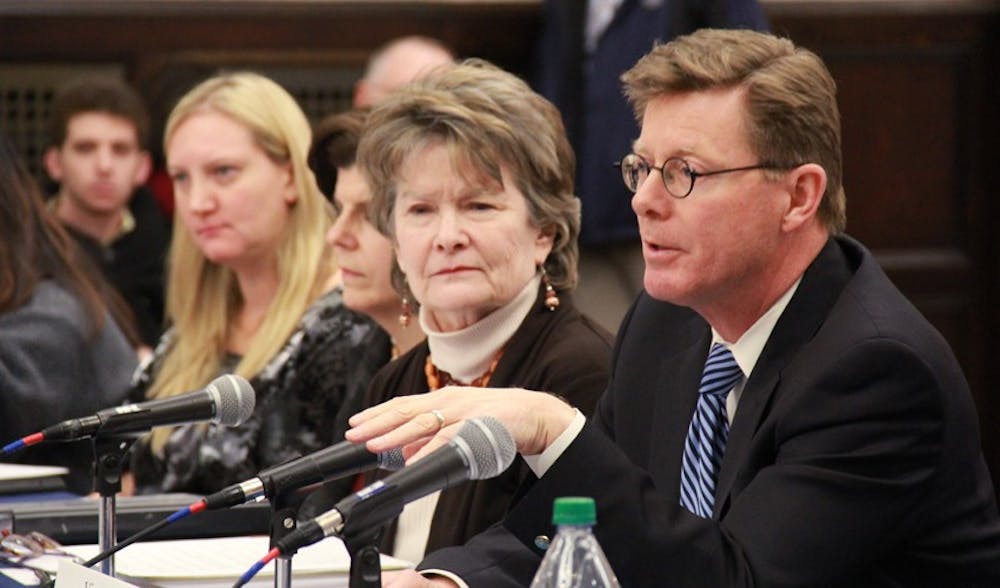
Despite student concerns that the new mental health recommendations do not have an established timeline for implementation, members of the task force said at Wednesday’s University Council meeting that setting a timeline was not their responsibility. Provost Vincent Price said the University would pursue meeting the task force recommendations “with vigor.”
In a room of student leaders and administrators at the meeting, the Mental Health Task Force presented its findings — a set of recommendations released on Monday that followed six student suicides in the span of 15 months.
A major student concern with the report is its lack of a concrete timeline for making improving the mental wellbeing of Penn students. Although some recommendations were given completion goals — the committee said they will develop a web portal to centralize resources as well as a complementary app by next Fall — others have no set date of completion.
The vagueness of the recommendations may be attributed to the task force’s focus on “cultural rather than structural change,” as described by co-chair of the task force Anthony Rostain. In the U. Council meeting, the other co-chair of the task force Rebecca Bushnell said they had found that Penn’s culture is characterized by perfectionism and competition. Rostain also referenced the national findings that 54.7 percent of undergraduates felt “overwhelming anxiety” in the past year.
When asked at what point a timeline would be made for implementing the recommendations, Bushnell said, “The task force is now handing off the recommendations to the various bodies that are responsible for taking over [them], and others will then take responsibility for finishing the work.”
Proposals that did not specify completion goals include educating students about taking a leave of absence, educating faculty about Counseling and Psychological Services resources, identifying signs of distress in students and providing mental health training to the leaders of student groups.
Some of the recommendations made by the task force involve working with insurance policies, which can “take longer,” Price said.
“It doesn’t serve anyone’s interest to establish a timeline for the sake of announcing a timeline,” he added.
School of Veterinary Medicine student Jonathan Ferrari addressed the council about disproportionate access to mental wellness resources, particularly CAPS. First year veterinary students are six times more likely to be depressed and are twice as likely to commit suicide than the average person, he said.
Lack of flexibility in CAPS appointments makes access for veterinary students difficult. A survey conducted by the Vet School’s student government found half of veterinary students attempting to schedule appointments with CAPS were unable to do so because of conflicting course schedules, Ferrari said.
Expanding student financial aid was another issue students brought up at the meeting. Two undergraduate students urged the University to expand financial aid to cover summer classes and study abroad opportunities. Students pursuing dual degrees are particularly likely to need to take summer courses and could face financial conflict, they said.
The Daily Pennsylvanian is an independent, student-run newspaper. Please consider making a donation to support the coverage that shapes the University. Your generosity ensures a future of strong journalism at Penn.
DonatePlease note All comments are eligible for publication in The Daily Pennsylvanian.







